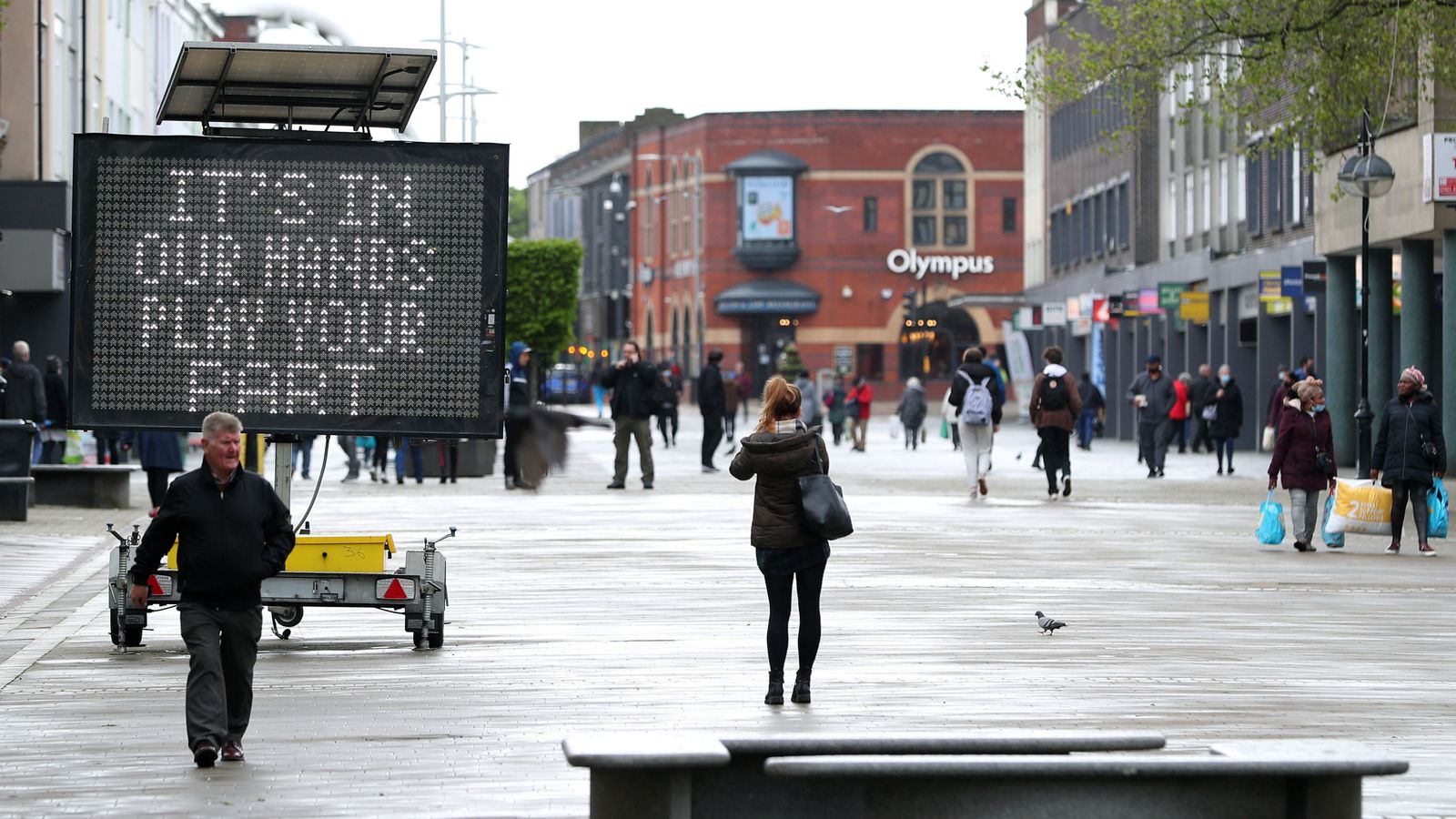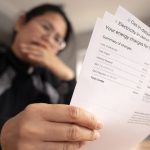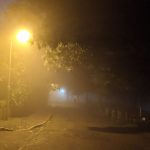COVID infections appear to be “growing exponentially”, a professor has warned as he urged the government not to repeat the mistake of acting too late to tackle the spread of the virus.
Sir Tim Gowers – whose argument against herd immunity helped trigger England’s first lockdown last year – told Sky News that the recent increase in coronavirus cases “worries me”.
“They seem to be multiplying by a certain fraction each day – in other words, growing exponentially,” he said.
“We’re still at a reasonably low base but, on the other hand, we know that there’s a lag.
“Even if we were to take serious action and more social distancing action, that growth would continue for a while until the effect of that action kicked in.”
Sir Tim, a professor of mathematics at the University of Cambridge, said if it becomes clear that the UK’s coronavirus reproduction number “is significantly bigger than 1 then we just have to act”.
On Friday, it was announced the R value in England is 1 to 1.1, up from 0.9 and 1.1 the previous week, suggesting the epidemic is growing.
Sir Tim said: “It worries me because the numbers do seem to be multiplying by a certain amount each day, and have been for at least the last few days.
“That seems to be a bad sign – but one would have to look more closely at the data to be absolutely sure that we should press the panic button.”
Please use Chrome browser for a more accessible video player
Sir Tim added: “Nobody likes lockdown, I should stress. I don’t at all – I’m not a fan of lockdowns.
“It’s precisely because of that, that I think early action is good – because the earlier you take the action, the shorter the lockdown needs to be.
“It’s actually counterproductive to wait until you’re really forced to have a lockdown, and then have a lockdown.
“That’s the mistake that’s been made a number of times and I really hope that particularly mistake will not be made again.”
His comments came as the spread of the Indian variant of coronavirus casts doubt on whether the planned lifting of all legal limits on social contact in England on 21 June will go ahead.
Experts have argued that restrictions should remain in place until more people have received both doses of a vaccine, amid reports that ministers are drawing up plans for a partial end of lockdown.
Current data suggests that, although hospital admissions are rising in some parts of the country affected by the Indian variant, overall admissions remain broadly flat.






















